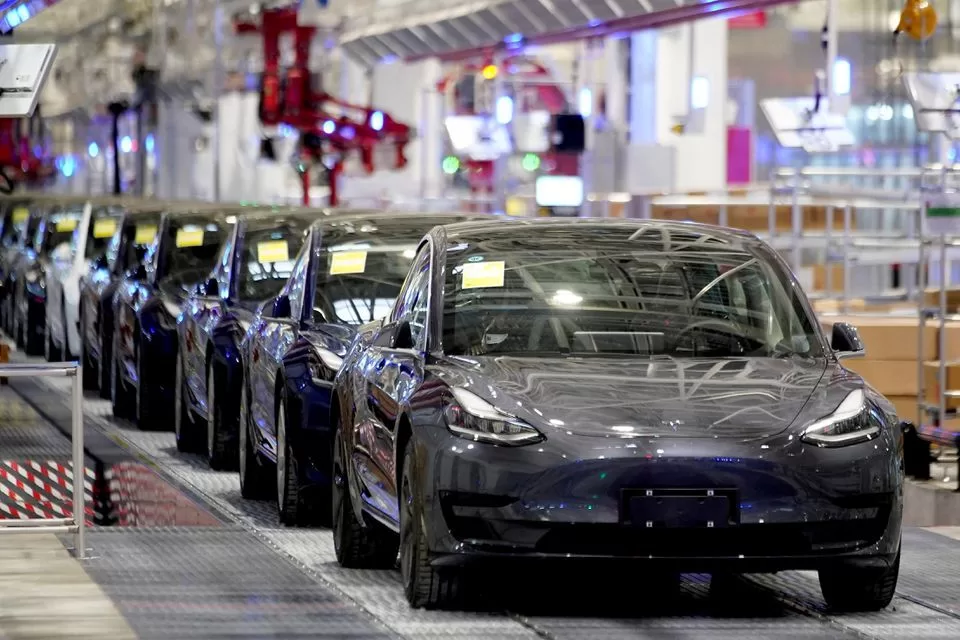Auto
Challenging Times for Electric Vehicle Market: High Interest Rates Impact Growth

Highlights
- High interest rates hinder electric vehicle market (EV)growth, impacting automakers and regulators.
- GM-Honda’s $5B EV plan dissolved after just a year, signalling shifting priorities.
- LG Energy Solution warns of potential EV demand dip in the coming year due to economic uncertainties.
- Investors react with a 24% drop in the iShares Self-Driving EV and Tech ETF.
- Despite challenges, EV sales are still rising, hitting historic highs in the U.S., Europe, and China.
The electric vehicle (EV) market is facing a significant challenge as high interest rates dampen the ambitions of climate regulators and automakers to accelerate the shift towards cleaner transportation options. This was underscored by the recent dissolution of a GM-Honda partnership and a cautionary statement from a major battery maker.
While the demand for electric vehicles continues to grow robustly, it is not keeping pace with the expectations of car manufacturers and other invested companies. The anticipation of persistently elevated interest rates has prompted these entities to reassess their plans, approaching 2024 with caution.
Lee Chang-sil, Chief Financial Officer at South Korean battery manufacturer LG Energy Solution, voiced concerns on Wednesday, stating that “EV demand next year could be lower than expectations,” attributing this to global economic uncertainties.
Furthermore, General Motors and Honda announced the termination of their $5 billion joint venture aimed at developing cost-effective EVs, merely a year after its inception. GM also indicated a shift in focus towards meeting demand, rather than adhering to specific volume targets for the near future.
GM CEO Mary Barra emphasized, “We’re taking immediate steps to enhance the profitability of our EV portfolio and adjust to slowing near-term growth.”
Investors have responded to this altered outlook, with the iShares Self-Driving EV and Tech exchange-traded fund experiencing a decline of over 24% in the last three months. This is in sharp contrast to the 8.3% fall observed in the MSCI All-World Index, a global equities benchmark.
In spite of these challenges, EV sales are still on the rise. The United States saw over 300,000 units sold in the third quarter, a historic high. In Europe, sales surged by 14.3% in September, while in China, the world’s largest EV market, they experienced a remarkable 22% growth.
However, concerns over high interest rates persist. Tesla CEO Elon Musk recently expressed apprehension, noting the impact of the high interest rate environment on consumers’ purchasing decisions. Musk stressed, “The vast majority of people buying a car is about the monthly payment. If interest rates remain high or if they go even higher, it’s that much harder for people to buy the car.”
Other major automakers, including Volkswagen, have echoed similar notes of caution. The German automaker revised down its profit margin outlook for the year, citing negative effects on raw material hedges at the end of the third quarter—materials that are crucial in EV battery production.
In a somewhat unexpected turn, falling raw material prices have offered a silver lining. Prices of essential components such as lithium and cobalt have seen significant declines this year, providing some relief for manufacturers.
Nonetheless, the market has witnessed adjustments in production strategies. Ford, for instance, announced a temporary reduction in shifts at its electric F-150 Lightning pickup truck plant, redirecting investments towards commercial vehicles and hybrids.
This challenging landscape has also impacted key players in the EV supply chain. Japanese motor manufacturer Nidec logged its most significant decline in fifteen years, expressing concerns over its prospects in the competitive Chinese EV market. Similarly, China’s CATL, the largest battery maker for EVs globally, reported its weakest quarter since the beginning of last year, citing slowing demand and heightened competition.
In conclusion, while the electric vehicle market continues its upward trajectory, it is not without its share of challenges. High interest rates are reshaping the industry landscape, prompting manufacturers and investors alike to recalibrate their strategies for the near future. Despite these headwinds, the commitment to a sustainable transportation future remains steadfast.


















































